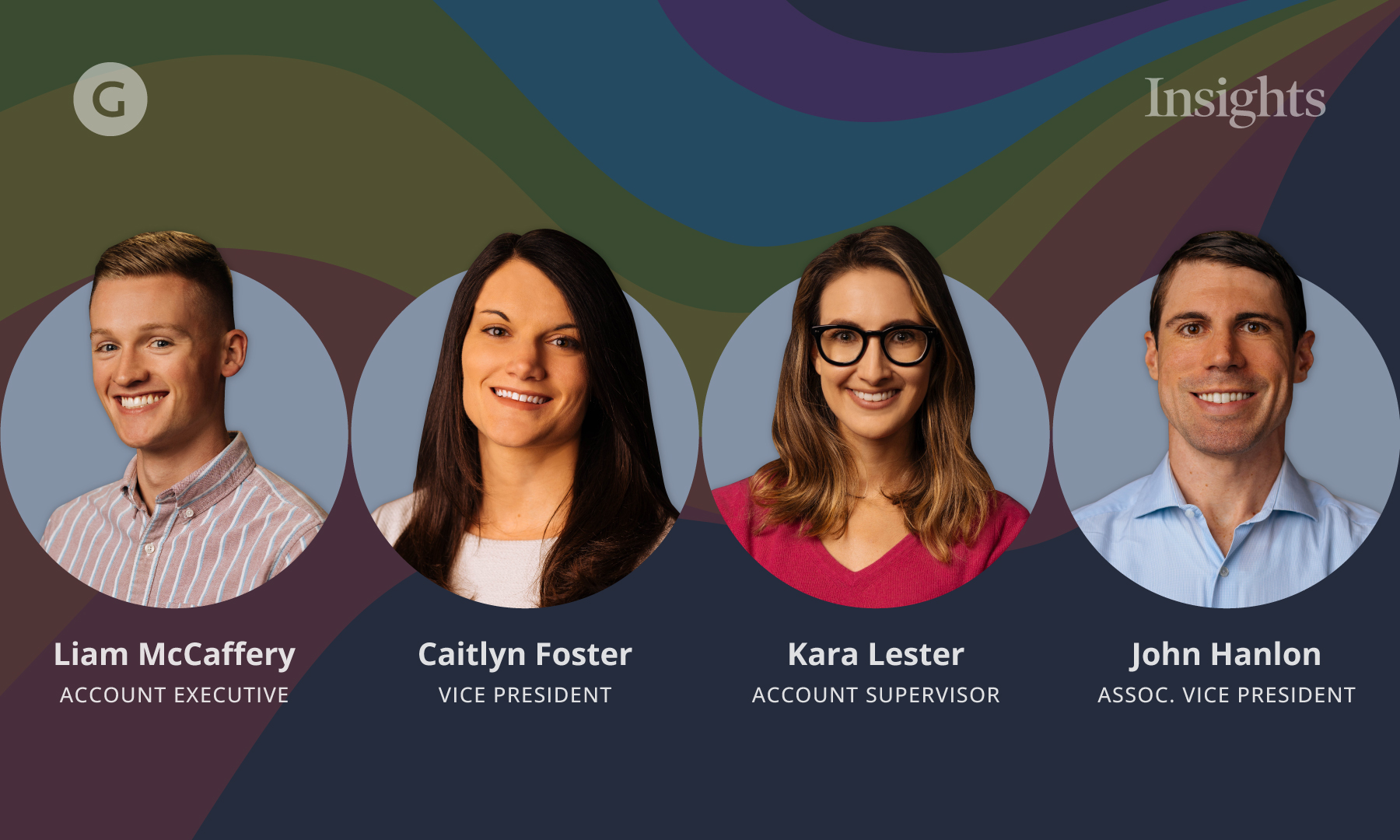In honor of Pride Month and its celebration of love, diversity and acceptance, we want to shine a light on a cornerstone of the LGBTQIA+ community — its allies. These are the people who stand alongside LGBTQIA+ individuals and play a pivotal role in propelling conversations, advocating for equality and creating safe spaces. To gain deeper insights, we reached out to some of our own colleagues here at Gregory FCA, asking them to share what being an ally to the LGBTQIA+ community means to them:
Liam McCaffery, account executive: As a proud queer man, I believe that authentic allyship is exemplified by actions that promote equity for my community. But, I cannot talk about allyship without recognizing my own privilege. As a cisgender, white man, my identity holds a lot of privilege both out in the world and in the LGBTQIA+ community. I am not a true ally if I am not advocating for every queer person, especially the most marginalized — trans and non-binary people of color.
For those who are not part of the community, to me, authentic allyship is interrupting bigotry. Unfortunately, queer identities are politicized. Luckily, politics is largely relational, which means that each of us has the power to access and influence different individuals, groups or institutions that are prejudiced against LGBTQIA+ people.
If you consider yourself an ally, I want you to ask yourself how you interrupt hate against queer people. Are you a protestor? A donor? Would you speak up at dinner when a friend or family member says something they shouldn’t? Authentic allyship can take many forms. My plea is for you to think deeply about how you can use your voice and actions to secure equity for queer people in a country that continually tries to strip us of our most basic human rights.
Caitlyn Foster, vice president: First and foremost, being an ally is an ongoing commitment. In today’s world, members of the LGBTQIA+ community continue to face unprecedented challenges. These range from social stigmatization to legal inequalities, mental health struggles and other forms of discrimination. It is my responsibility to stay informed and educate myself continuously about the issues affecting the community.
To me, one of the core elements of allyship is open communication. I find it important to not be afraid to engage in open, honest dialogues with LGBTQIA+ individuals in my life. These conversations enable me to understand the challenges that members of the community face, and to learn how I can lend my support in meaningful ways.
I firmly believe that the core of allyship is action. Being an ally is not a passive role — it requires putting values into practice. For instance, it is important to create a culture where derogatory language and discrimination are not tolerated. Whenever I witness any form of negative behavior or language directed at the LGBTQIA+ community, I consider it my duty as an ally to speak up and address it.
John Hanlon, associate vice president: Being an ally to the LGBTQIA+ community means encouraging colleagues and clients to lean on one another for support as needed. Although June is designated as “Pride Month,” every month should be a time of pride for LGBTQIA+ individuals, as well as for all people who wish to embrace diversity in any way to feel a sense of equality and community.
Successful firms across multiple industries are recognizing the value in promoting DE&I, and how it’s actually good for business in the long run — allowing employees to feel a sense of belonging and communicate to customers or clients a healthy and open-minded message about community and support.
June is an especially important time, in terms of celebrating Pride as well as honoring Juneteenth. As an American, I make an effort to remember and recognize socially conscious issues every day of the year, not just on a designated date or during a specific month.
Kara Lester, account supervisor: To me, being an ally to the LGBTQIA+ community is an important quality in the friends I surround myself with and the place that I work. As a married, white woman, I’ve never faced judgment or been denied services based on my choice of partner or how I define my gender.
I can’t know how that feels but I do my best to listen, understand and be empathetic. To me, allyship is knowing there is always more to learn and creating a culture of inclusivity for community members.
Awareness months like Pride Month serve as a reminder of the privileges many of us have and many others aren’t afforded. They also remind us of what we should be doing year-round to support our friends, colleagues and family who are members of the LGBTQIA+ community.
Pride Month is not only a celebration but also a time to reflect and consider your own impact. What does being an ally to the LGBTQIA+ community mean to you?
